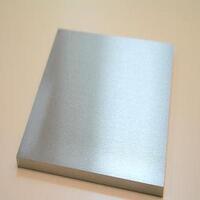Discover premium surfactants for various applications. Reliable export services, competitive prices, and high performance guaranteed.
PRODUCT PARAMETERS
Description
Overview of Carbon Steel Plate
Carbon steel plates are fundamental materials used across various industries due to their strength, versatility, and cost-effectiveness. They are composed primarily of iron and carbon, with small amounts of other elements. These plates can be cut, formed, and joined in numerous ways to suit different applications, ranging from construction to manufacturing.
Features of Carbon Steel Plate
High Strength: Offers excellent mechanical properties for demanding applications.
Versatility: Suitable for a wide range of industrial uses including structural, machinery, and tooling.
Cost-Effective: Provides an economical solution without compromising on performance.
Ductility: Can be easily shaped or formed into desired configurations.
Durability: Resistant to wear and tear, ensuring long-lasting performance.
Weldability: Capable of being welded without loss of integrity or strength.

(Carbon structural high quality super-thinness cold rolled carbon steel plate for chemical machinery)
Specifications of Carbon structural high quality super-thinness cold rolled carbon steel plate for chemical machinery
This carbon structural top quality super-thin cold-rolled carbon steel plate is designed for chemical equipment applications. It incorporates accuracy design with trusted performance. The density ranges from 0.2 mm to 2.0 mm. The width varies between 600mm and 1500mm. Personalized measurements are offered to satisfy specific task needs. The product grade adheres to worldwide requirements like ASTM A1008 or JIS G3141. The steel plate undertakes rigorous cold-rolling procedures. This guarantees consistent density and a smooth surface finish. Surface area roughness is managed below Ra 0.6 μm. The reduced roughness minimizes friction in mechanical systems. It also stops material accumulation in harsh environments. The steel plate’s tensile strength arrays from 270MPa to 410MPa. Return strength stays between 140MPa and 280MPa. Elongation at break exceeds 30%. These homes ensure longevity under high-stress problems. The chemical make-up consists of carbon content of 0.10% to 0.25%. Manganese degrees vary from 0.30% to 0.60%. Sulfur and phosphorus are restricted to under 0.035%. This balance boosts weldability and deterioration resistance. Warmth treatment alternatives like annealing or toughening up improve mechanical properties. The steel plate functions well in acidic or alkaline settings. It resists typical chemical rust. Applications include reactor vessels, warmth exchangers, and tank. Precision cutting solutions are readily available. Laser or waterjet cutting ensures tidy sides. The steel plate meets ISO 9001 high quality monitoring criteria. Third-party evaluations validate conformity. Product packaging makes use of anti-rust paper and moisture-proof materials. This avoids oxidation during storage space or transportation. Technical assistance is offered product choice and construction. Examples can be examined prior to mass orders. The item sustains long-lasting operational security in chemical handling. Upkeep expenses remain low because of its wear-resistant residential or commercial properties. Ecological regulations are adhered to throughout production. Recyclability straightens with lasting manufacturing goals.
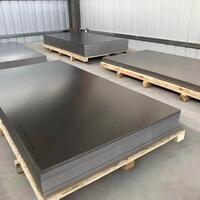
(Carbon structural high quality super-thinness cold rolled carbon steel plate for chemical machinery)
Applications of Carbon structural high quality super-thinness cold rolled carbon steel plate for chemical machinery
Carbon structural premium super-thin cold-rolled carbon steel plates are commonly used in chemical machinery. These plates incorporate strength, resilience, and precision. They take care of harsh chemical environments. Their thinness decreases material waste. This makes them cost-efficient for massive projects.
Chemical processing equipment calls for resistance to corrosion. These steel layers excel below. They hold up against exposure to acids, alkalis, and other reactive materials. Their consistent surface area coating stops contamination. This is vital for preserving item pureness in chemical manufacturing.
High-pressure activators and storage tanks rely upon these plates. The material’s architectural stability guarantees security under extreme stress. Thinness does not endanger stamina. Advanced cold-rolling strategies enhance grain structure. This improves strength and tiredness resistance. Devices lasts much longer despite regular use.
Heat exchangers benefit from home plates’ thermal conductivity. Efficient heat transfer is essential in chemical procedures. The slim account allows portable layouts. This saves area without lowering efficiency. Maintenance becomes less complex because of reduced weight.
Piping systems in chemical plants use these plates. Their adaptability suits complex formats. Welding and shaping are less complicated compared to thicker materials. Drip dangers decrease with specific construction. This decreases downtime and repair work prices.
The steel’s pureness makes certain constant efficiency. Pollutants are decreased during manufacturing. This avoids weak spots or corrosion factors. Chemical machinery runs accurately under constant anxiety.
Quality control during manufacturing is rigorous. Density resistances are firmly managed. Surface defects are eliminated. This guarantees uniformity across batches. Chemical machinery builders count on these plates for critical parts.
Custom sizes and qualities are readily available. Details chemical applications demand customized services. Suppliers adjust carbon web content and processing methods. This satisfies unique mechanical or chemical resistance needs.
Ecological factors are considered. The steel’s recyclability aligns with sustainable practices. Chemical plants decrease their environmental impact. Long life span better sustains waste reduction.
These plates fulfill worldwide criteria for chemical equipment. Accreditations ensure conformity with security and performance needs. International providers rely upon them for projects across markets.
The mix of thinness, toughness, and deterioration resistance makes these plates crucial. Chemical machinery demands products that do under diverse challenges. Cold-rolled carbon steel plates deliver regularly. They make it possible for effective, risk-free, and sturdy options for modern-day chemical processing.
Company Introduction
Welcome to Wgraj, a premier global supplier of high-quality metal cladding solutions. We specialize in providing a wide range of metal cladding products, including aluminum, steel, and copper composites, designed to meet the diverse needs of architects, builders, and designers. Our commitment to innovation, durability, and aesthetic excellence ensures that our clients receive top-tier materials for their projects. With state-of-the-art manufacturing facilities and a dedication to customer satisfaction, we deliver reliable, cost-effective solutions worldwide. Partner with us for your metal cladding needs and experience unmatched quality and service.
If you have any questions, please feel free to contact us(nanotrun@yahoo.com).
Payment Methods
T/T, Western Union, Paypal, Credit Card etc.
Shipment Methods
By air, by sea, by express, as customers request.
5 FAQs of Carbon structural high quality super-thinness cold rolled carbon steel plate for chemical machinery
Carbon structural high-quality super-thin cold-rolled carbon steel plates for chemical machinery are designed for durability and precision. Here are five common questions about this product.
What materials are these steel plates made from? They are made from carbon steel. The steel undergoes cold rolling to achieve thinness and strength. This process ensures a smooth surface and uniform thickness. The result is a product ideal for chemical machinery requiring high performance.
Why is super-thinness important for chemical machinery? Thin steel plates save space and reduce weight. Chemical machinery often operates in tight environments. Thinner plates maintain structural integrity without compromising strength. They also allow precise fabrication of complex parts.
How does this steel resist corrosion in chemical environments? The plates are treated with protective coatings. These coatings block exposure to corrosive substances. The steel’s composition also resists oxidation. Regular maintenance further extends their lifespan in harsh conditions.
What thickness options are available? Thickness ranges from 0.2mm to 2.0mm. Custom sizes can be produced based on specific needs. Thinner plates suit applications needing flexibility. Thicker options handle heavy-duty components.
Can these plates replace regular steel in existing machinery? Yes. They offer better performance due to their refined structure. The cold-rolled process enhances hardness and surface quality. Compatibility depends on the machinery’s design requirements. Consult technical specifications before switching.
These steel plates meet strict industry standards. They are tested for tensile strength and chemical resistance. Manufacturers rely on them for critical components. Proper handling during installation prevents damage. Storage in dry conditions avoids premature rusting.
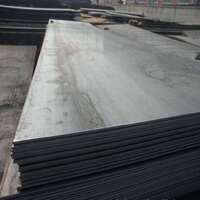
(Carbon structural high quality super-thinness cold rolled carbon steel plate for chemical machinery)
REQUEST A QUOTE
RELATED PRODUCTS
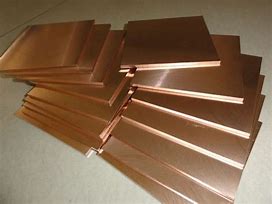
1mm 3mm 6mm 10mm 12mm Astm A36 Q235 Q345 Ss400 Mild Carbon Steel Plates 20mm Thick Steel Sheet
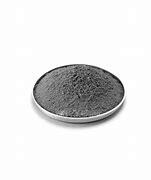
High Strength And High Toughness steel Grade 4830(70)Class 1 Class 2 carbon steel plate
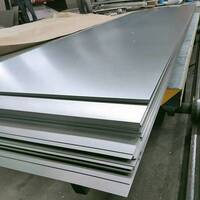
Hot Rolled Flat Plate Ballistic Armor Plate Sheets (old) Metal Sheets Astm A572 Carbon Steel Ms Steel Coated Boiler steel Plate
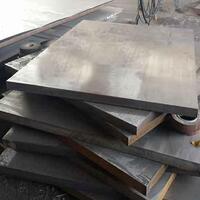
Best Q235B Q355B Carbon Steel Plate Hot Rolled Steel Sheet SS400 Carbon Steel Sheet

Ss400 A36 Q235 Q345 Carbon Steel Plate Cold Rolled 6mm-50mm Black Iron Carbon Steel Plate


